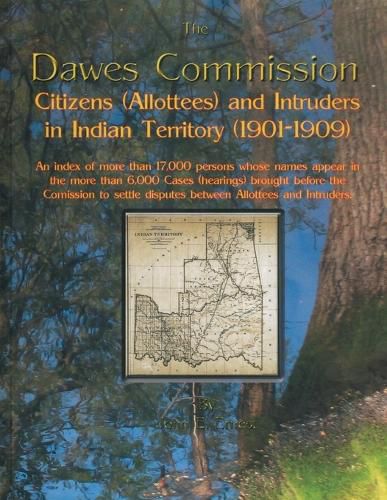Readings Newsletter
Become a Readings Member to make your shopping experience even easier.
Sign in or sign up for free!
You’re not far away from qualifying for FREE standard shipping within Australia
You’ve qualified for FREE standard shipping within Australia
The cart is loading…






This title is printed to order. This book may have been self-published. If so, we cannot guarantee the quality of the content. In the main most books will have gone through the editing process however some may not. We therefore suggest that you be aware of this before ordering this book. If in doubt check either the author or publisher’s details as we are unable to accept any returns unless they are faulty. Please contact us if you have any questions.
On February 8, 1887, Congress passed the Dawes Act, named for its author, Senator Henry Dawes of Massachusetts. Also known as the General Allotment Act, the law allowed for President Grover Cleveland (1893-1897) to break up reservation land, which was held in common by the members of a tribe, into small allotments to be parceled out to the Citizens of the Five Nations. The Dawes Commission was responsible for activities concerning the Five Nations in Indian Territory, Oklahoma. Its major responsibility was to enforce the various treaties made between the Indian Nations and the federal government and to enforce decisions made by the Bureau of Indian Affairs (BIA) and its arm, the Union Agency. This Commission was also responsible for allotting tribal lands to eligible citizens, placing them in possession of their allotment(s) and settling disputes between the citizen allottee and intruders. The Commission was headquartered in Muskogee, IT (future Oklahoma). While the Dawes rolls are a major source of Indian citizen records, there is no central list of non-citizen intruders. The fact is that Indian Territory (Oklahoma) attracted thousands of whites and non-citizen Indians with the prospect of obtaining surplus tribal lands or renting or leasing individual allotments. This work incorporates both the intruders and the rightful allottees.
$9.00 standard shipping within Australia
FREE standard shipping within Australia for orders over $100.00
Express & International shipping calculated at checkout
This title is printed to order. This book may have been self-published. If so, we cannot guarantee the quality of the content. In the main most books will have gone through the editing process however some may not. We therefore suggest that you be aware of this before ordering this book. If in doubt check either the author or publisher’s details as we are unable to accept any returns unless they are faulty. Please contact us if you have any questions.
On February 8, 1887, Congress passed the Dawes Act, named for its author, Senator Henry Dawes of Massachusetts. Also known as the General Allotment Act, the law allowed for President Grover Cleveland (1893-1897) to break up reservation land, which was held in common by the members of a tribe, into small allotments to be parceled out to the Citizens of the Five Nations. The Dawes Commission was responsible for activities concerning the Five Nations in Indian Territory, Oklahoma. Its major responsibility was to enforce the various treaties made between the Indian Nations and the federal government and to enforce decisions made by the Bureau of Indian Affairs (BIA) and its arm, the Union Agency. This Commission was also responsible for allotting tribal lands to eligible citizens, placing them in possession of their allotment(s) and settling disputes between the citizen allottee and intruders. The Commission was headquartered in Muskogee, IT (future Oklahoma). While the Dawes rolls are a major source of Indian citizen records, there is no central list of non-citizen intruders. The fact is that Indian Territory (Oklahoma) attracted thousands of whites and non-citizen Indians with the prospect of obtaining surplus tribal lands or renting or leasing individual allotments. This work incorporates both the intruders and the rightful allottees.